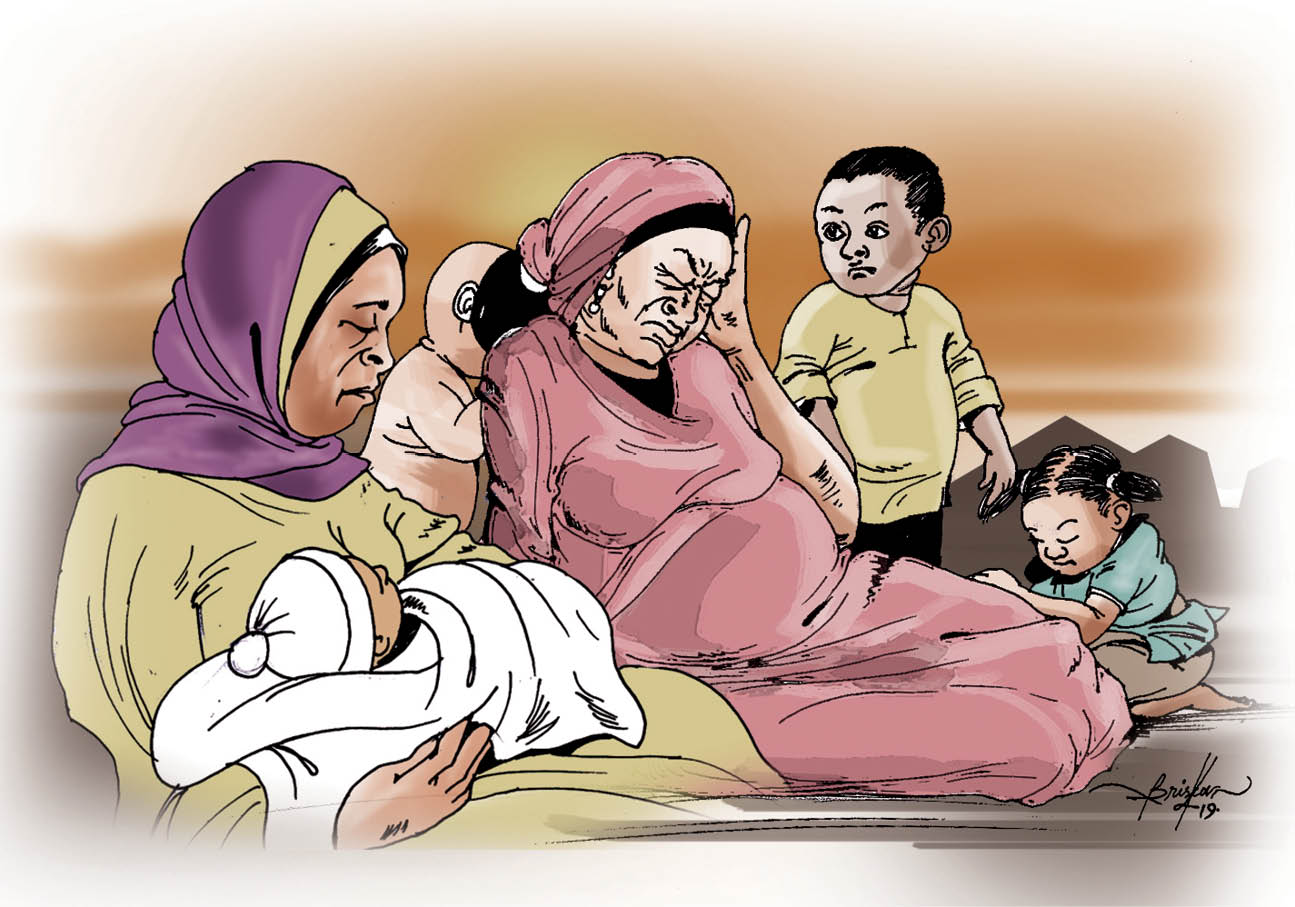Post-Boko Haram: Preparing widows, orphans ‘Back to Home’
One of the greatest menace created by the 10 years of Boko Haram insurgency in the Borno state and the Northeast region is the monumental population of widows and orphans whose husbands or parents were either killed or abducted and never returned from the captivity of the insurgents. While the widows found their way to […]

One of the greatest menace created by the 10 years of Boko Haram insurgency in the Borno state and the Northeast region is the monumental population of widows and orphans whose husbands or parents were either killed or abducted and never returned from the captivity of the insurgents.
While the widows found their way to the various Internally Displaced Persons (IDPs) camps in Maiduguri and other parts of Borno and other states of the federation as grownups, majority of the orphans entered the camps unaccompanied, thus leaving them totally stranded after the IDPs camps might have been closed.
According to official figures, about 55,000 widows and 52,000 orphans apart from unaccompanied children were recorded in the last decade of insurgency activities in the region.
This phenomenon has prompted the government and Nongovernmental Organizations (NGOs) to begin to plan for the future of these victims who might pose another threat greater than the Boko Haram insurgency if the widows are not empowered and the orphans not enrolled in schools.
The NGOs selected 30 stakeholders and trained the caregivers, parents and communities workers on “Post Trauma Stress Disorder” to enable them prepare and be well informed so as to be able to provide psychosocial support to these children in their various communities.
ActionAid Nigeria, in collaboration with Hallmark Leadership Initiatives, have also thrown their weight to supporting Borno state government by initiating a project tagged “ Back To Home” which would assist a total of 600 unaccompanied children to get back to homes with foster parents as well as enroll into schools.
Back To Home, Project Coordinator for ActionAid in Borno state, Mr. Charles Durotaye, said orphans would be given psychosocial counselling and be enrolled into schools as well as support the foster homes, which most often are female-headed, by building the income generating skills of the foster mothers.
He explained that the project was funded by Demmark TV through ActionAid Nigeria in partnership with Hallmark Leadership Initiatives.
“We are also partnering with government agencies like SEMA, Ministry of Education, Ministry of Women Affairs, the Ministry of Reconstruction Rehabilitation and Resettlement and SUBEB.
“We want to enrol 600 children into schools, the children that are orphans, unaccompanied or displaced as a result of insurgency. We want to register them and give them to female-headed homes because we discover that the number is huge, especially the unaccompanied children.
“So we are supporting the state government to reduce the burden; we have put the modality in place to register these children and foster them.
“We are going to support these homes with stipends and food stuff for a period of time; sometimes we will give them economic empowerment.
“As you can see, we are training community volunteers in Kaga, Konduga and Jere local government areas. We are also training community teachers and health workers on psychosocial support because it is key to this project, so that they have special skills on how to handle women and children on psychosocial support.
“We are taking them back home and to schools and we are currently talking with ministries like those of Education and women affairs.
“This project is committed to removing children from street and enrol them into schools,” Charles affirmed.
On his part, the Executive Director Hallmark Leaderahip Initiatives, Shettima Babakura Iman stressed that there is need for more donors to come and assist the government because the task is quite challenging and overwhelming.
“If you looked back, most of these children are traumatized by insurgency. Some witnessed how their parents were murdered or they were forcefully taken away by insurgents. So it will not work if we don’t change how they are thinking. For them to learn requires specialized kind of care.
“You can’t just take them to schools without taking into considerations what they have been through. I believe this training on post trauma stressed disorder will enhance the thinking of both the caregivers and the children.
“We will monitor the foster parents so as to know the challenges and what need to be done, at first we will give them enough food stuff and stipends every month for two years. So it is our hope that after two years they would have capacity to sustain them. This project is different because we must sustain it and make sure the foster parents have also the same vision in line with Back To Home. So it is unique in its approach, its takes care of feeding, healthcare, education and wholesome. Like I said the caregivers will do the follow up because they reside in the communities,” Shettima said.
